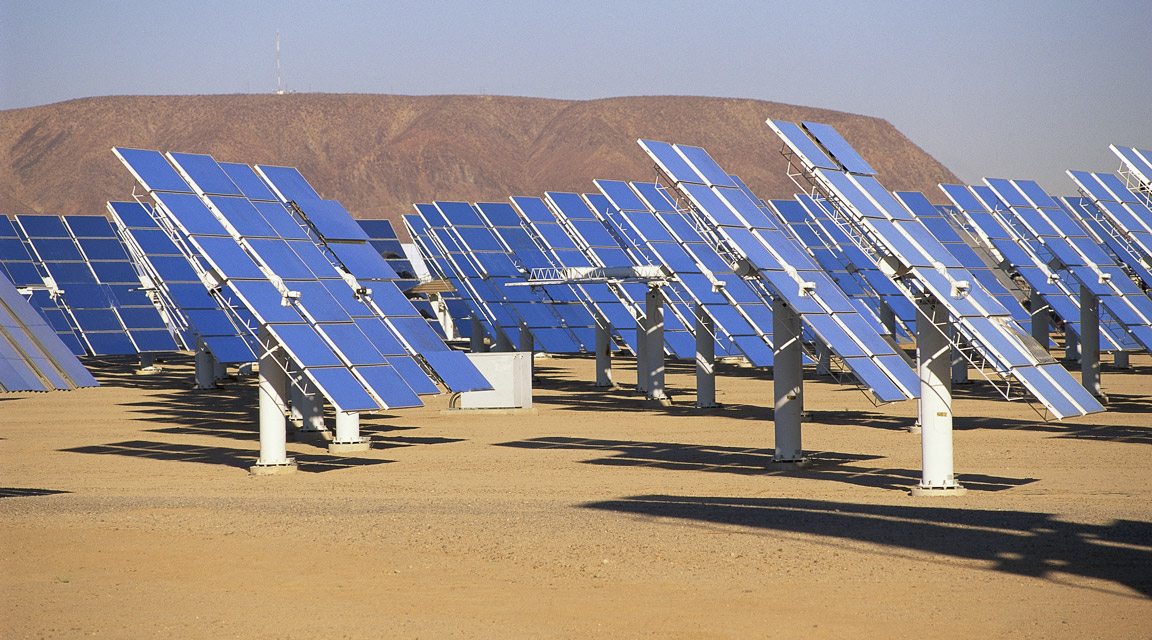

Market is set for further growth in 2016
The value of contract awards for renewable energy generation projects in the Middle East and North Africa rose to $7.7bn in 2015, up 450 per cent on the $1.4bn worth of deals awarded in 2014.
While the total value of power generation contracts across all technologies rose by 61 per cent in 2015, reaching $32.9bn, from $20.5bn in 2014, the proportion of renewable energy contracts was significantly higher.
In 2015, renewable energy projects accounted for almost 24 per cent of all generation awards, compared to only 7 per cent the previous calendar year.
While hydropower has been implemented throughout the region for a number of years, 2015 was the year that wind, and particularly, solar emerged on a utility scale.
Out of the $7.7bn of renewable energy contract awards in 2015, 58 per cent, $4.5bn, were for solar power projects.
The largest contracts awarded were for the Noor 2 and 3 concentrated solar power (CSP) projects in Morocco in January, which was followed shortly by the award of the 200MW photovoltaic (PV) in Dubai.
Acwa Power was successful in all three of these major projects, all procured under the independent power producer (IPP) model, cementing its position as one of the key developers for renewable energy in the Middle East. The developer added to its renewable energy portfolio towards the end of the year in November, when it was awarded a contract to develop a 120MW wind farm project in Morocco.
Morocco will remain a key renewables market in 2016 as it pushes ahead with its first PV projects, and prepares to award contracts for an 850MW wind power development. Dubai has invited bids for the 800MW third phase of its Sheikh Mohammed bin Rashid al-Maktoum solar park, which will be by far the largest collection of solar projects in the region.
Jordan was a key renewable energy market in 2015, as it concluded contracts for a number of solar projects under engineering, procurement and construction (EPC) and feed-in-tariff models.
For the feed-in-tariff programme, Amman reached financial close for 12 projects in the first round of schemes. It also made progress with large scale utility-scale renewable plants, culminating in the award of the $128m contract to Spains TSK/UAEs Environmena to build a 103MW solar plant in the Al-Queira region.
Egypt also emerged as one of the regions largest solar markets in 2015, with the award of a contract for a 220MW wind farm to Spains Gamesa.
The North African country will be one of the major renewables markets in 2016, as it seeks to reach financial close on the first projects under its 4,300MW feed-in-tariff programme. It is also preparing to award the contract for a 250MW solar IPP in the Gulf of Suez, and is planning to tender contracts for three IPP projects in the West Nile area: 250MW wind farm, 200MW PV solar plant and a 50MW CSP scheme.
After a quiet period following the commissioning of its 100MW Shams 1 CSP project in 2013, Abu Dhabi is seeking to keep up with neighbouring emirate Dubai in 2016 with the expected tender of a 350MW solar IPP in the Sweihan area.
You might also like...

Red Sea Global awards Marina hotel infrastructure
18 April 2024

Aramco allows more time to revise MGS package bids
18 April 2024

Morocco tenders high-speed rail project
18 April 2024
A MEED Subscription...
Subscribe or upgrade your current MEED.com package to support your strategic planning with the MENA region’s best source of business information. Proceed to our online shop below to find out more about the features in each package.









